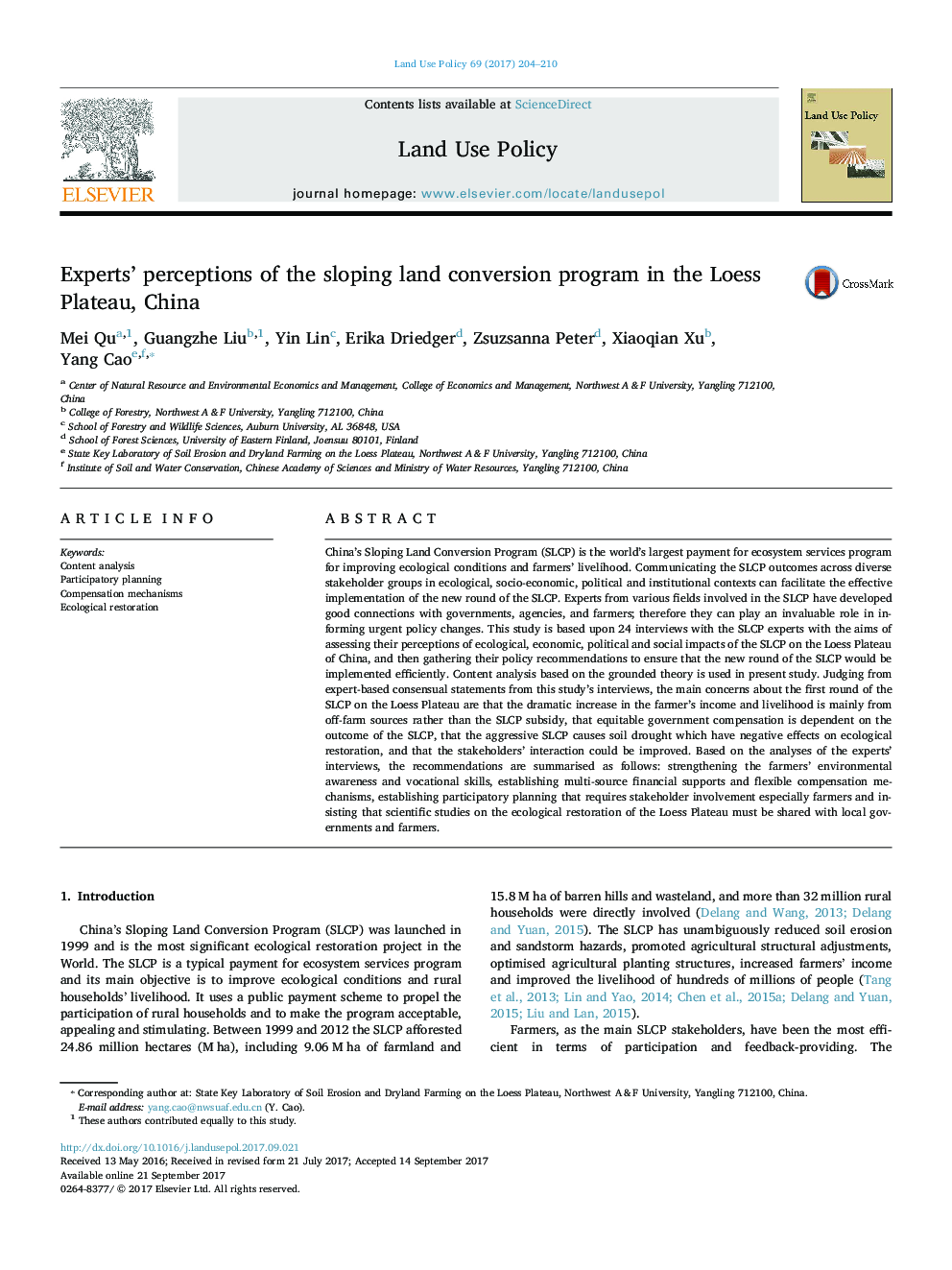| کد مقاله | کد نشریه | سال انتشار | مقاله انگلیسی | نسخه تمام متن |
|---|---|---|---|---|
| 6460351 | 1421814 | 2017 | 7 صفحه PDF | دانلود رایگان |
- Interviewed experts from different research fields about the on-going SLCP.
- Raising farmers' environmental awareness can reduce the chance of land reconversion.
- Participatory planning requires involvement of all stakeholders, especially farmers.
- Scientific research results must be shared with local governments and farmers.
China's Sloping Land Conversion Program (SLCP) is the world's largest payment for ecosystem services program for improving ecological conditions and farmers' livelihood. Communicating the SLCP outcomes across diverse stakeholder groups in ecological, socio-economic, political and institutional contexts can facilitate the effective implementation of the new round of the SLCP. Experts from various fields involved in the SLCP have developed good connections with governments, agencies, and farmers; therefore they can play an invaluable role in informing urgent policy changes. This study is based upon 24 interviews with the SLCP experts with the aims of assessing their perceptions of ecological, economic, political and social impacts of the SLCP on the Loess Plateau of China, and then gathering their policy recommendations to ensure that the new round of the SLCP would be implemented efficiently. Content analysis based on the grounded theory is used in present study. Judging from expert-based consensual statements from this study's interviews, the main concerns about the first round of the SLCP on the Loess Plateau are that the dramatic increase in the farmer's income and livelihood is mainly from off-farm sources rather than the SLCP subsidy, that equitable government compensation is dependent on the outcome of the SLCP, that the aggressive SLCP causes soil drought which have negative effects on ecological restoration, and that the stakeholders' interaction could be improved. Based on the analyses of the experts' interviews, the recommendations are summarised as follows: strengthening the farmers' environmental awareness and vocational skills, establishing multi-source financial supports and flexible compensation mechanisms, establishing participatory planning that requires stakeholder involvement especially farmers and insisting that scientific studies on the ecological restoration of the Loess Plateau must be shared with local governments and farmers.
Journal: Land Use Policy - Volume 69, December 2017, Pages 204-210
